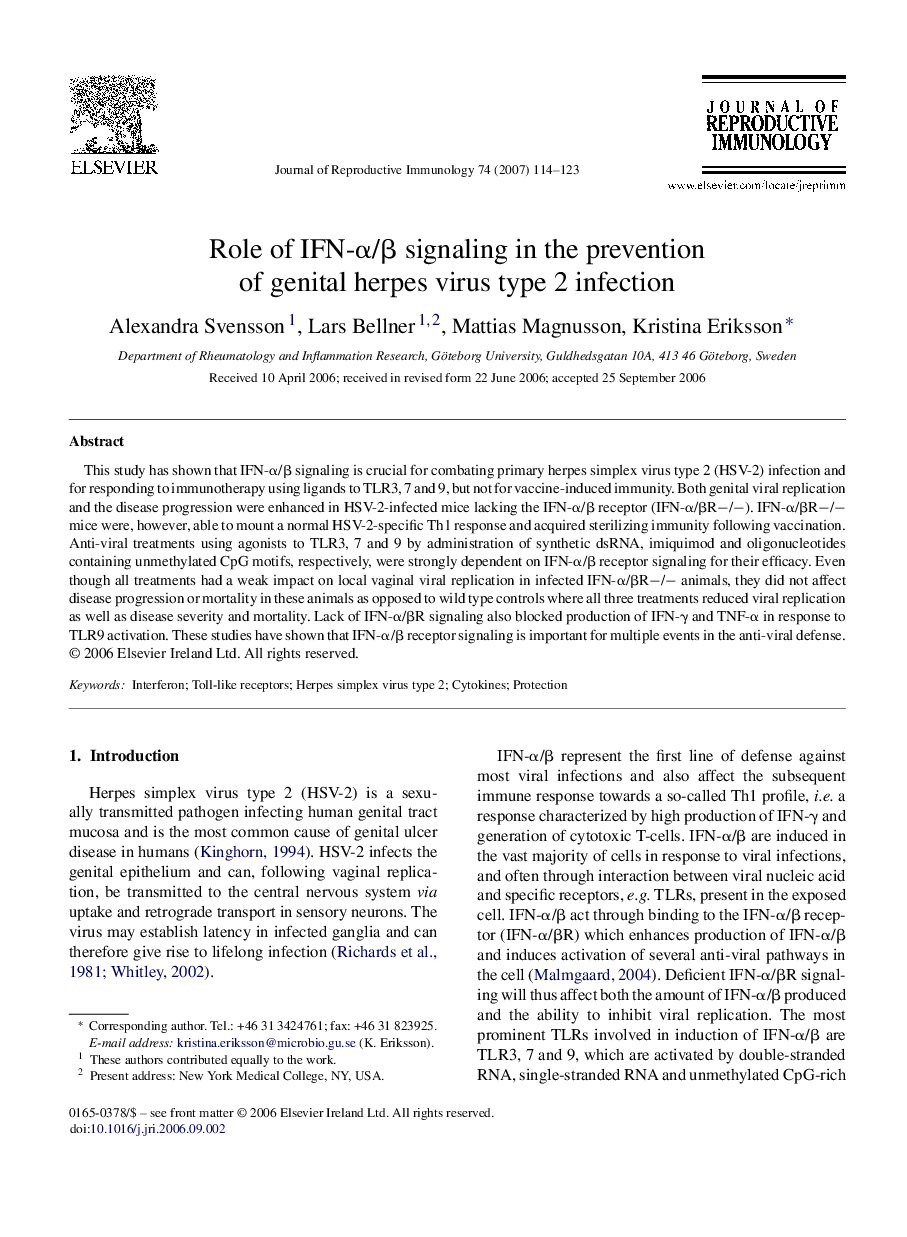| Article ID | Journal | Published Year | Pages | File Type |
|---|---|---|---|---|
| 3964051 | Journal of Reproductive Immunology | 2007 | 10 Pages |
This study has shown that IFN-α/β signaling is crucial for combating primary herpes simplex virus type 2 (HSV-2) infection and for responding to immunotherapy using ligands to TLR3, 7 and 9, but not for vaccine-induced immunity. Both genital viral replication and the disease progression were enhanced in HSV-2-infected mice lacking the IFN-α/β receptor (IFN-α/βR−/−). IFN-α/βR−/− mice were, however, able to mount a normal HSV-2-specific Th1 response and acquired sterilizing immunity following vaccination. Anti-viral treatments using agonists to TLR3, 7 and 9 by administration of synthetic dsRNA, imiquimod and oligonucleotides containing unmethylated CpG motifs, respectively, were strongly dependent on IFN-α/β receptor signaling for their efficacy. Even though all treatments had a weak impact on local vaginal viral replication in infected IFN-α/βR−/− animals, they did not affect disease progression or mortality in these animals as opposed to wild type controls where all three treatments reduced viral replication as well as disease severity and mortality. Lack of IFN-α/βR signaling also blocked production of IFN-γ and TNF-α in response to TLR9 activation. These studies have shown that IFN-α/β receptor signaling is important for multiple events in the anti-viral defense.
